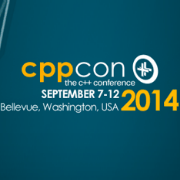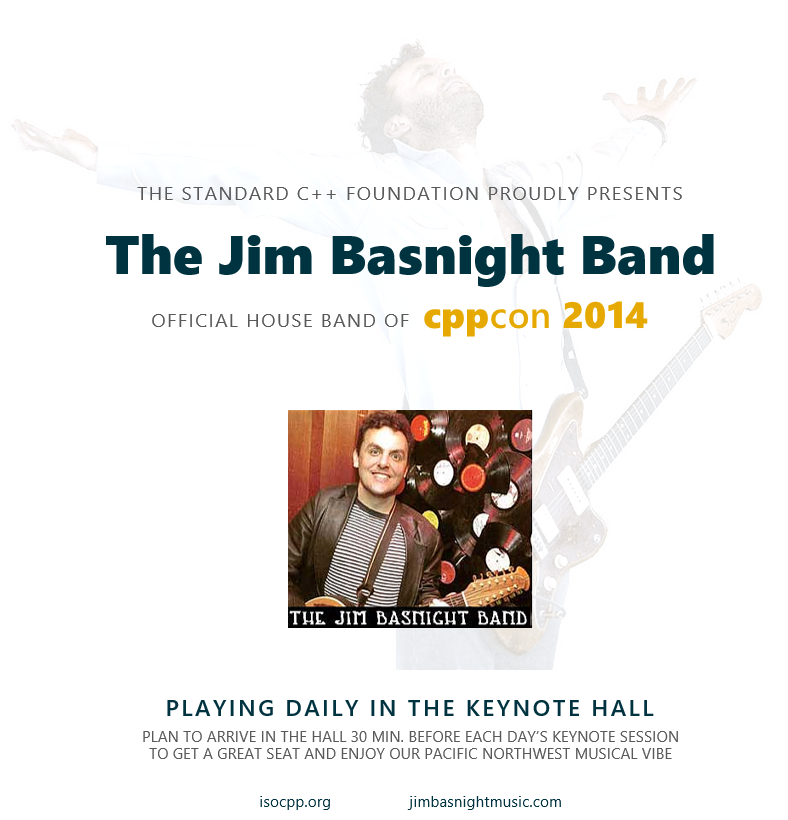CppCon Program Highlights, 3 of N: C++ and the Modern Game
 The CppCon 2014 conference program has been posted for the upcoming September conference. We've received requests that the program continue to be posted in "bite-sized" posts, a few sessions at a time, to make the 100+ sessions easier to absorb, so here is another set of talks. This series of posts will conclude once the entire conference program has been posted in this way.
The CppCon 2014 conference program has been posted for the upcoming September conference. We've received requests that the program continue to be posted in "bite-sized" posts, a few sessions at a time, to make the 100+ sessions easier to absorb, so here is another set of talks. This series of posts will conclude once the entire conference program has been posted in this way.
No C++ conference (or 'Con) would be complete without covering a perennial stronghold for tight C++ code: games. What can be said that hasn't been said before? Some interesting answers will be found in the following talks, which cover the gamut from casual homebrew games to the world's top "AAA" titles... and a little bird tells us there may be some additional leading-edge game-related content still to be announced for CppCon. As always, these talks are by the right people -- Those Who Know and Those Who Do in some of the leading efforts in our industry.
In this post:
- How Ubisoft Montreal Develops Games for Multicore -- Before and After C++11
- C++ in Huge AAA Games
- Quick game development with C++11/C++14
How Ubisoft Montreal Develops Games for Multicore -- Before and After C++11
Multicore hit the video game industry in a big way. Every platform we develop for now comes in a multicore configuration, and we're always under pressure to exploit the hardware to its fullest. This talk will share our experience learning to develop C++ software for multicore processors over the last decade. It will also explore the new concurrency support in C++11, and examine the way C++11 has influenced the way we develop multicore software so far.
Speaker: Jeff Preshing, Technical Architect, Ubisoft. Jeff Preshing is a Technical Architect at Ubisoft Montreal, where he's worked on games such as Rainbow Six Vegas, Child of Light and Assassin's Creed Unity. He also maintains a blog where he writes frequently about lock-free programming and the C++11 atomic library.
C++ in Huge AAA Games
Video games like Assassin's Creed or Rainbow Six are among the biggest code bases with a single static linking. Iteration-time is critical to develop a great game and keeping a complete compilation-time of a few minutes is a constant challenge. This talk will explain the C++ usage reality at Ubisoft Montreal for huge projects. Ideas will be shared regarding performance, debugging and iteration time.
Speaker: Nicolas Fleury, Technical Architect, Ubisoft. Nicolas Fleury has been in video game industry for over 10 years, working as a Technical Architect on projects like Prince of Persia and currently on Rainbow Six: Siege. Before working in the game industry, he worked in computer assisted surgery, speech recognition and telecoms.
Finally, to underscore that C++ is not just for "big AAA" titles, CppCon is very pleased to include this fresh talk by a superb young up-and-coming open source gaming guru -- if you haven't heard his name yet, don't worry, you will:
Quick Game Development with C++11/C++14
Modern C++ has made game development a much more pleasurable experience. Features such as smart pointers and variadic templates are invaluable in speeding up the development process and in making the code cleaner and more robust. New easy-to-use multimedia libraries such as SFML, SDL and Cinder make dealing with graphics, sounds and input very easy, and work well with modern code principles. This talk guides the audience through the creation of an Arkanoid/Breakout clone in under 200 lines of code, using C++11/C++14 features and idioms. Chronologically sequential code segments, compiled and executed one by one, will show the attendees how a game is created from scratch, slowly becoming a playable product, step by step. The end result will be a small game, completely written in modern C++ code. Topics covered will range from basic graphics programming to entity management and collision detection/response.
Speaker: Vittorio Romeo. Vittorio is an Italian 19 year old Computer Science student at the University of Messina. He started programming at a very young age and soon became an enthusiast of the C++ language. While following the evolution of the C++ standard and embracing the newest features, he worked on many open-source project, such as general-purpose libraries and free multiplatform independent games, which are still being maintained and expanded today. Vittorio also participated as a speaker at Messina's 2013 Linux Day event and he is currently creating an online game-development C++11 video tutorial series for beginners.

 As
As